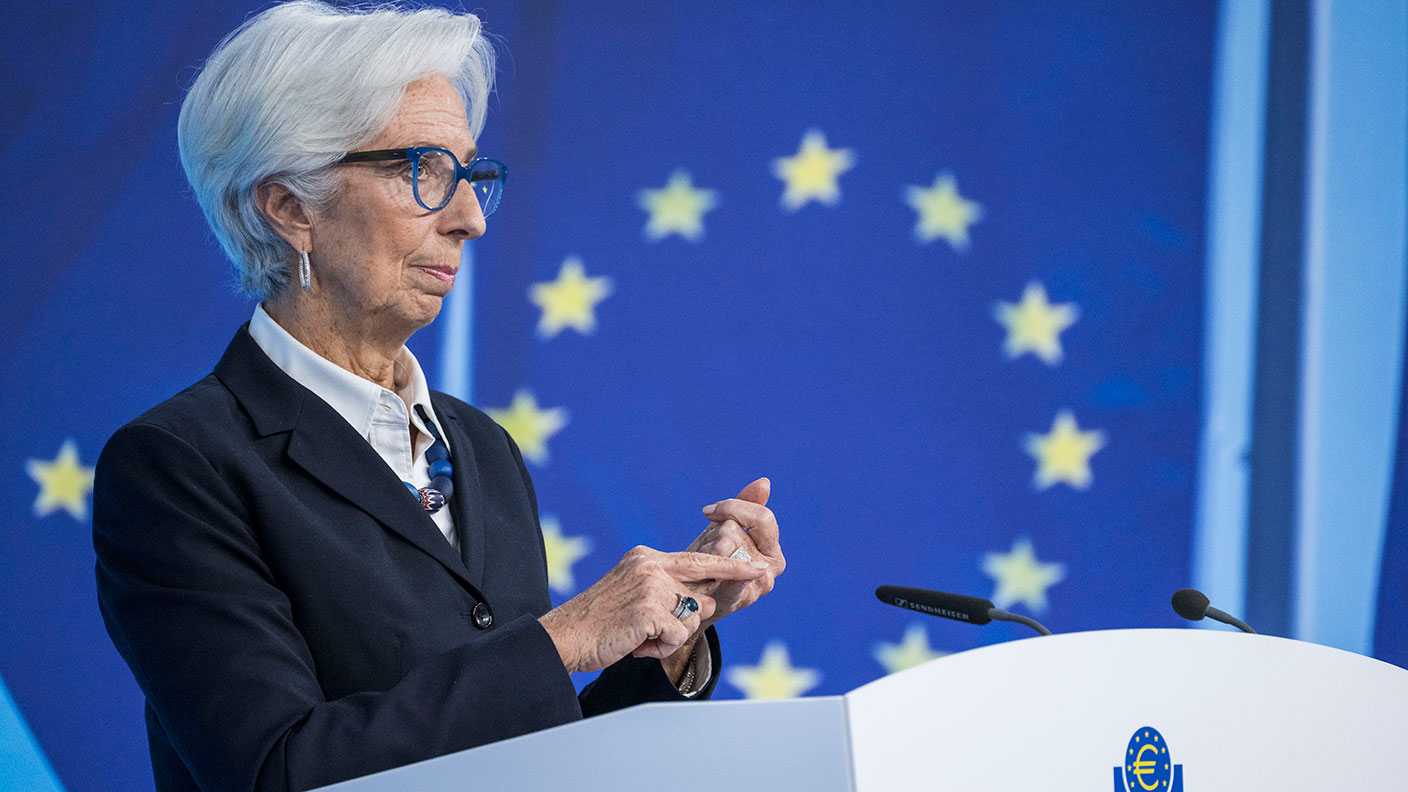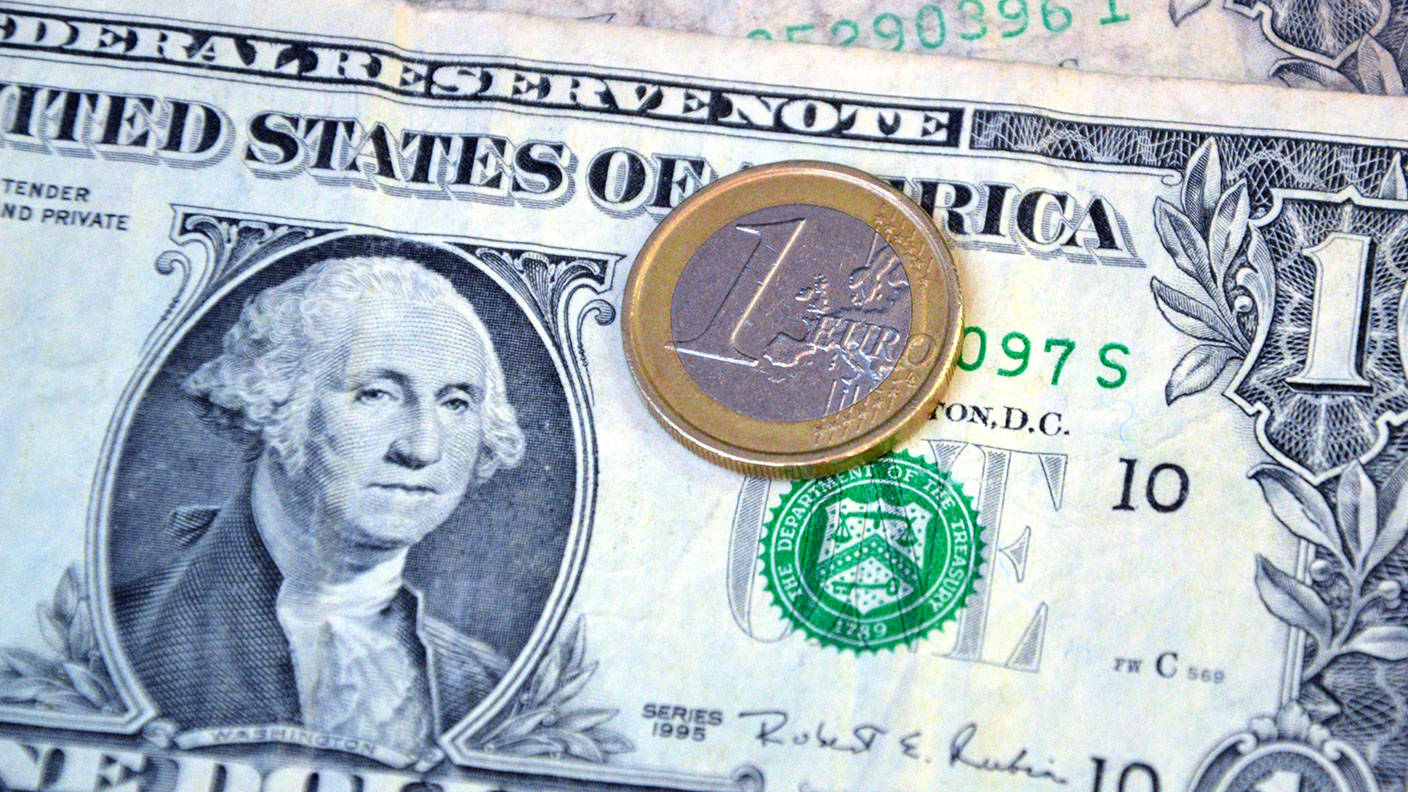Why the euro is still a short bet
Markets reacted to the Federal Reserve's European 'rescue' deal may have given the euro a temporary boost, but don't be fooled, says Tim Bennett.
Get the latest financial news, insights and expert analysis from our award-winning MoneyWeek team, to help you understand what really matters when it comes to your finances.
You are now subscribed
Your newsletter sign-up was successful
Want to add more newsletters?

Twice daily
MoneyWeek
Get the latest financial news, insights and expert analysis from our award-winning MoneyWeek team, to help you understand what really matters when it comes to your finances.

Four times a week
Look After My Bills
Sign up to our free money-saving newsletter, filled with the latest news and expert advice to help you find the best tips and deals for managing your bills. Start saving today!
Did the Fed save Europe last week? No. But it certainly grabbed the headlines.
In an attempt to shore up confidence in Europe's banking system and avert a Lehman's-style meltdown at a sovereign level, the US Federal Reserve cut a deal with five fellow central banks. For more details on the mechanics of this, see my latest video: Has the Fed saved Europe?
Markets reacted to the news with something approaching euphoria: stocks rose and the euro put on a surge as investors hoped that America was riding to the rescue. But don't be fooled.
MoneyWeek
Subscribe to MoneyWeek today and get your first six magazine issues absolutely FREE

Sign up to Money Morning
Don't miss the latest investment and personal finances news, market analysis, plus money-saving tips with our free twice-daily newsletter
Don't miss the latest investment and personal finances news, market analysis, plus money-saving tips with our free twice-daily newsletter
Yes, by increasing dollar-funding lines to the European Central Bank in particular, the Fed ensured that a major banking disaster is unlikely in the short term. And the mere fact it is now involved in Europe and knocking heads together is some cause for cheer. But there are plenty of reasons to assume any respite for the euro will be short lived.
As Zoe Fiddes at easy-forex.com notes, "one US presidential candidate suggested that the central bank action was like giving more drugs to an addict: it feels good for a while but doesn't solve the addiction problem". European banks are still sitting on huge euro assets of largely unknown value. The solvency problem hasn't been resolved, even if liquidity has been given a short-term boost.
Meanwhile, the central bank action that was announced stopped well short of a concerted debt-buying program along the lines of US and UK quantitative easing. The fact that the Central Bank of China also decided to lower its reserve ratio (this influences the amount of credit a commercial bank can create) suggests, says Fides, "that China is also more worried about potential fallout from the EU crisis".
So for spread betters who wonder whether the rise in the euro and the fall in the US dollar seen last week are temporary, the message is very much so. Sure, there'll be volatility in the US dollar and euro rates, but given the state of Europe, I'd bet on the greenback to retain safer haven status.
Get the latest financial news, insights and expert analysis from our award-winning MoneyWeek team, to help you understand what really matters when it comes to your finances.
Tim graduated with a history degree from Cambridge University in 1989 and, after a year of travelling, joined the financial services firm Ernst and Young in 1990, qualifying as a chartered accountant in 1994.
He then moved into financial markets training, designing and running a variety of courses at graduate level and beyond for a range of organisations including the Securities and Investment Institute and UBS. He joined MoneyWeek in 2007.
-
 How a ‘great view’ from your home can boost its value by 35%
How a ‘great view’ from your home can boost its value by 35%A house that comes with a picturesque backdrop could add tens of thousands of pounds to its asking price – but how does each region compare?
-
 What is a care fees annuity and how much does it cost?
What is a care fees annuity and how much does it cost?How we will be cared for in our later years – and how much we are willing to pay for it – are conversations best had as early as possible. One option to cover the cost is a care fees annuity. We look at the pros and cons.
-
 The challenge with currency hedging
The challenge with currency hedgingA weaker dollar will make currency hedges more appealing, but volatile rates may complicate the results
-
 It's time to back the yen, says Dominic Frisby
It's time to back the yen, says Dominic FrisbyThe Japanese yen has been weak for a long time, says Dominic Frisby. That may soon change.
-
 Investors dash into the US dollar
Investors dash into the US dollarNews The value of the US dollar has soared as investors pile in. The euro has hit parity, while the Japanese yen and the Swedish krona have fared even worse.
-
 Why a strong dollar hurts – and what you can do about it
Why a strong dollar hurts – and what you can do about itAnalysis The US dollar is at its strongest level in 20 years. That’s bad news for most investment assets, says John Stepek – here’s why
-
 Could a stronger euro bring relief to global markets?
Could a stronger euro bring relief to global markets?Analysis The European Central Bank is set to end its negative interest rate policy. That should bring some relief to markets, says John Stepek. Here’s why.
-
 HubSpot: a tech stock set to tumble
HubSpot: a tech stock set to tumbleTips US tech stocks have had a fantastic couple of years. But this year is unlikely to be so bullish for high-fliers that can’t turn big profits.
-
 What does the future hold for central bank digital currencies?
What does the future hold for central bank digital currencies?Briefings Many of the world's central banks – including the Bank of England – have expressed an interest in creating their own digital currencies. Shivani Khandekar looks at the state of play in central bank digital currencies.
-
 A weakening US dollar is good news for markets – but will it continue?
A weakening US dollar is good news for markets – but will it continue?Opinion The US dollar – the most important currency in the world – is on the slide. And that's good news for the stockmarket rally. John Stepek looks at what could derail things.